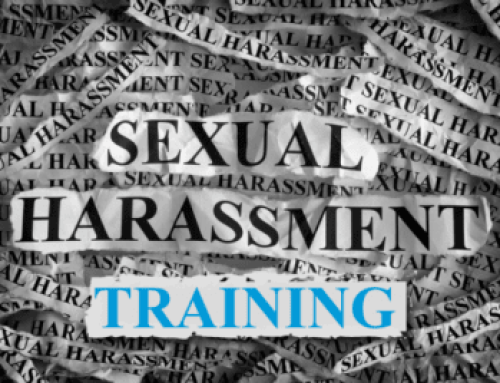Overview:
Several new employment-related laws have been enacted, and California employers need to stay current. These laws address various leave provisions (sick leave, medical leave, child bonding leave, crime victim leave), “no re-hire” provisions in employment-related settlement agreements, timeframe for filing DLSE complaints, attorneys’ fees for whistleblowers, and successor liability for wage/hour judgments. Savvy California employers and human resource managers are implementing policies and procedures to ensure compliance with the new laws.
Family Rights Act Applies to Small Employers (SB 1383):
California employers with five or more employees now need to comply with the California Family Rights Act (CFRA), which had previously only applied to private employers with 50 or more employees within 75 miles of the workplace. The new law requires employers to provide unpaid, job-protected leave of up to 12 weeks during each 12-month period for covered employees to bond with a new child or care for themselves or a family member with a serious medical condition.
Additionally, the definition of “family members” has changed and now includes a child, parent, grandparent, sibling, spouse, or domestic partner. This expanded definition is now broader than the definition under the federal Family and Medical Leave Act (FMLA). Because the CFRA now provides time off for employees to care for a broader group of family members than the FMLA, CFRA leave might not always run concurrently with FMLA leave. It could be possible for an employee to be eligible to take as much as 24 weeks of combined leave under both the CFRA and FMLA, depending on the reasons for the leave.
Per SB 1383, the CFRA no longer has a provision permitting employers to provide fewer than 12 weeks for leave in connection with the birth, adoption, or foster care placement of a child if both parents work for the same employer. Employers also may not refuse to reinstate a salaried employee who is among the highest paid (within the top 10% in the company), even if the company asserts that such refusal is necessary to prevent substantial and grievous economic injury to the business. Because the new law eliminates this so-called “key employee” exemption, covered employers must reinstate all employees who return from a CFRA-covered leave period.
Re-Hire Provisions in Settlement Agreement (AB 2143):
Since January 1, 2020, “no-rehire” clauses have been prohibited in settlement agreements resolving employment disputes, except where the employer made a good-faith determination that the employee engaged in sexual harassment or assault. That law (CCP 1002.5) does not apply to standard severance agreements; rather, it only applies to settlement agreements where the employee filed a claim against the employer in court, before an administrative agency, or through some form of ADR or employer internal complaint process.
AB 2143 amended existing law in three primary ways. First, for the employer to properly claim an exemption from the “no-rehire” clause prohibition, it must have made (and documented) a good faith determination that the former employee engaged in sexual harassment or sexual assault before the employee filed his/her claim or cause of action. Second, “no re-hire” clauses are permitted when the former employee engaged in any criminal conduct (e.g., embezzlement), so it is no longer limited to sexual harassment or sexual assault instances (but the employer still needs to make and document a good faith determination that the employee engaged in such criminal conduct). Finally, the new law clarifies that the prohibition against “no-rehire” clauses in settlement agreements does not apply where the employee did not file their case or complaint in good faith.
New Rules for Filing DLSE Complaints; Whistleblower Attorneys’ Fees (AB 1947):
This new law has (i) increased the time for employees to file a complaint with the California Division of Labor Standards Enforcement (DLSE) from six months to one year, and (ii) authorized courts to award reasonable attorneys’ fees to employees who bring successful retaliation claims (“whistleblower” actions) under Labor Code section 1102.5. The DLSE can investigate complaints of discharge or discrimination in violation of any law within its jurisdiction. These employee complaints can lead to an investigative hearing and remedial action including rehire, reinstatement, reimbursement of lost wages, and/or penalties.
Employers should be aware of the severe consequences associated with losing retaliation/whistleblower claims. Labor Code section 1102.5 provides that any such violation constitutes a misdemeanor and may lead to actual damages and/or a civil penalty of $10,000 for each violation. The new law adds recovery of the employee’s attorneys’ fees, which increases the potential exposure of the business.
Successor Liability for Wage/Hour Judgments (AB 3075):
Some employers attempt to evade responsibility for unpaid wage/hour judgments by dissolving or otherwise discontinuing their company (the judgment debtor entity), and then forming a new entity to carry on business operations. AB 3075 helps workers enforce such judgments by making successor businesses liable for their predecessor’s unpaid wage/hour judgments. The new law states that a “successor” to a judgment debtor will be liable for any “wages, damages, and penalties owed to any of the judgment debtor’s former workforce pursuant to a final judgment, after the time to appeal therefrom has expired and for which no appeal therefrom is pending.”
A “successor” entity is one that (i) uses substantially the same facilities or substantially the same workforce to offer substantially the same services as the judgment debtor, (ii) has substantially the same owners or managers that control the labor relations as the judgment debtor, (iii) employs as a managing agent any person who directly controlled the wages, hours, or working conditions of the affected workforce of the judgment debtor, and (iv) operates a business in the same industry as the judgment debtor and the business has an owner, partner, officer, or director who is an immediate family member of any owner, partner, officer, or director of the judgment debtor.
The new law will require that business entities verify (in their Statements of Information filed with the California Secretary of State) whether any officer, director, or any member or manager of a limited liability company has an outstanding final judgment in any court or issued by the DLSE. Such requirement will apply starting on January 1, 2022, unless indicated sooner by the Secretary of State that their online technology portal is ready to implement such filing requirement.
Sick Leave for “Kin Care” (AB 2017):
This new law states that when an employee takes sick leave to help an ill family member, the designation of sick leave is at the sole discretion of the employee. As originally enacted, California’s “Kin Care” law (Labor Code section 233) gave employees the right to use up to half of their annually accrued and available employer-provided sick leave to attend to the illness of a family member. Then, the enactment of the Healthy Workplace, Healthy Families Act in 2014 expanded the reasons for which an employee could use sick leave and the employer could determine how to apply the use of such sick leave to the employee’s absences for the diagnosis, care, or treatment of an existing health condition of, or preventive care for, an employee or an employee’s family member, or for time off related to domestic violence, sexual assault, or stalking. The new AB 2017 gives employees the “sole discretion” to designate the reason for which they use their available sick leave.
Crime Victim Leave (AB 2992):
Employers cannot discharge, retaliate against, or otherwise take any adverse action against a victim of domestic violence, sexual assault, or stalking for taking time off from work to obtain relief or help, such as (i) obtaining a restraining order, (ii) seeking medical attention for injuries caused by domestic violence, sexual assault, or stalking, or (iii) obtaining psychological counseling related to an experience of domestic violence, sexual assault, or stalking. AB 2992 expands these leave protections to victims of any violent crime, and to immediate family members of homicide victims. Employees are now entitled to such leave regardless of whether any person is arrested for, prosecuted for, or convicted of committing the crime. The employer may require the employee to verify the need for this type of leave, which the employee can do by providing a written and signed statement certifying that the absence from work was due to a purpose authorized under the law. Documentation from a victim advocate may also work as verification.







